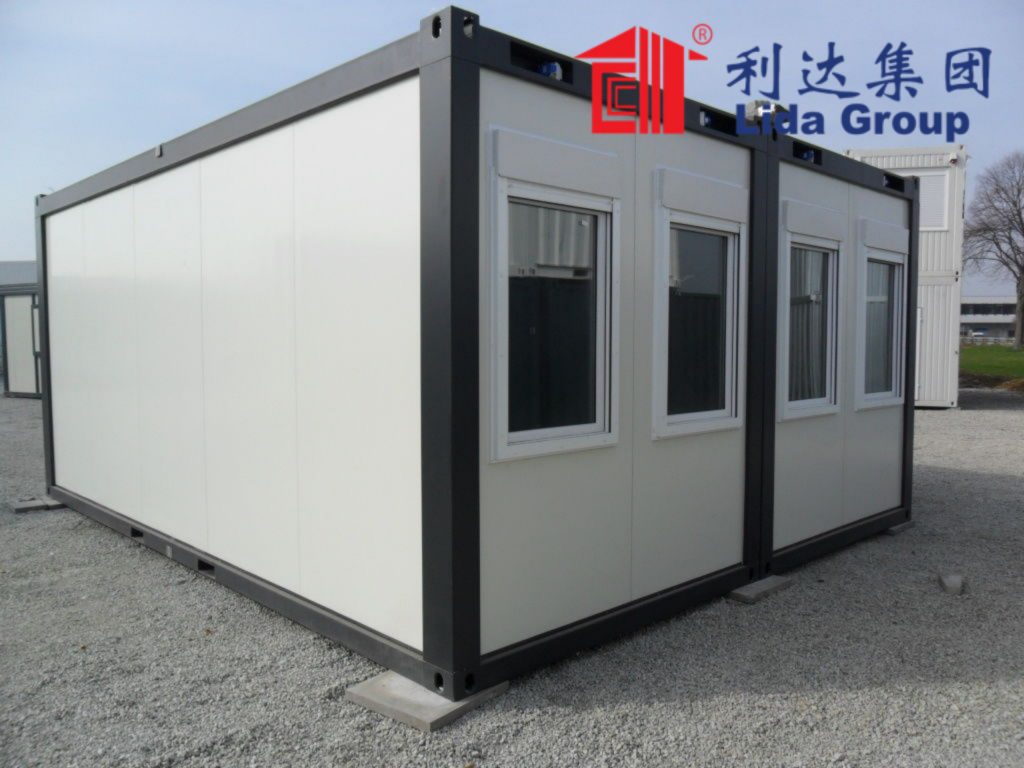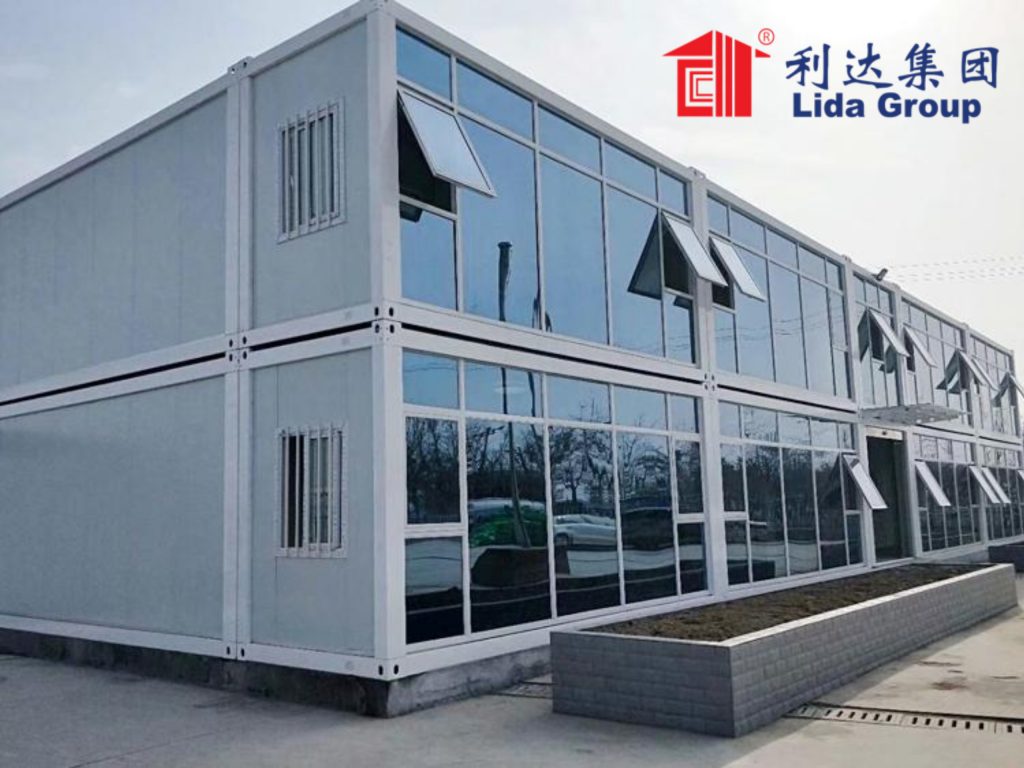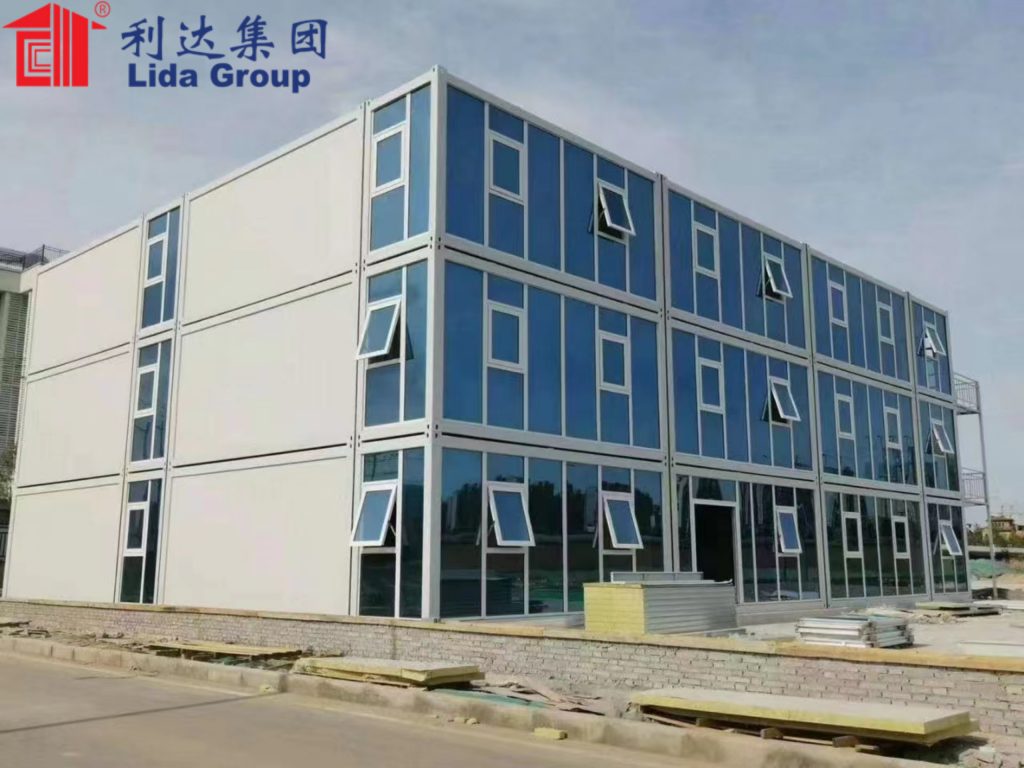As populations grow and urbanization increases worldwide, the demand for affordable, reliable housing options shows no signs of slowing down. Yet construction through traditional methods often faces limitations in meeting burgeoning shelter needs—from lack of available land to lengthy build times that can’t keep pace with accelerating development. Enter modular construction: An innovative approach leveraging off-site prefabrication to streamline the building process while expanding housing stock in sustainable, scalable ways. At the forefront of China’s modular industry is Shanghai-based Lida Group, a pioneer in scalable temporary housing solutions like prefab container homes and fully-serviced temporary dormitories.
Founded in 2005, Lida Group initially specialized in container-based modular housing as a means to rapidly deploy emergency shelter. However, the company soon recognized wider applications for standardized, easily transportable accommodation units able to supplement scarce housing inventory in rapidly urbanizing areas and regions undergoing major infrastructure projects. By prefabricating entire building modules in a controlled factory environment and Flat-packing housing units for fast on-site assembly, Lida Group streamlines construction timelines down to a fraction of traditional build periods. The vertically-integrated manufacturer handles every stage from design to installation, providing turnkey solutions tailored to client needs.

A core area of focus has been fulfilling demand for affordable temporary housing from educational institutions and large-scale developments lacking sufficient long-term accommodations. By leveraging container-based modular construction, Lida Group can rapidly deploy large dormitory villages fully fitted with modern amenities. Such scalable student housing solutions have proved popular for expanding university capacities—alleviating accommodation crunches through additional on-campus bed spaces constructed at a fraction of the time and cost of stick built dorms. Off-campus, the company’s prefabricated multi-story apartment blocks have also gained wide use by major infrastructure, energy and property development projects requiring workforce accommodations.
Take for example a recent 1500-bed student housing contract awarded to Lida Group by a prestigious Shanghai university. Within three months, the company designed, factory-fabricated and fully installed fourteen 100-bed dormitory blocks on the university campus. Constructed from stacked standardized shipping container modules, each dorm building featured four-stories, full kitchen/dining facilities on each floor and en-suite bathrooms—all flat-packed for rapid assembly. On-site installation was completed in under four weeks, well ahead of schedule and at lower cost compared to traditional construction. The fully-serviced temporary dormitories now house over 1500 students – augmenting the university’s existing housing stock without consuming valuable campus land.

Modular construction has also enabled Lida Group to respond rapidly when disaster strikes. The company maintains an emergency fleet of flat-packed container homes pre-positioned for rapid rollout wherever housing is urgently needed post-crisis. After devastating wildfires destroyed numerous villages in remote mountain regions, Lida Group mobilized—transporting over 200 three-room family units by road which were fully erected by over 100 builders within just one week. Providing safe, hygienic shelter for 1000 wildfire evacuees amid sparse local infrastructure, the company’s rapid intervention was hailed by officials for easing severe accommodation pressures during recovery efforts.
Such successes highlight how prefabricated temporary housing helps address chronic issues hampering urban and disaster-impacted communities worldwide – namely insufficient accommodation stock, lengthy construction periods and restricted developable land. As populations continue concentrating in cities, modular solutions like Lida Group’s enable densification of existing spaces through multi-story, prefabricated architecture. The scalability to mass-produce completed modules in a controlled factory setting further enhances housing supply resilience in the face of dynamic market demands and economic uncertainty.

Standardized, reusable components also lower materials costs compared to conventional construction practices. At end-of-use, modular buildings can likewise be unassembled then transported for reuse or recycled—supporting sustainable objectives. Such benefits are driving wider industry adoption, from student/workforce accommodations to temporary commercial and civic buildings. Looking ahead, Lida sees modular construction transforming shelter provision globally by streamlining housing delivery through off-site production advantages. From container-based apartments to multi-function complexes, future prefabricated environments will offer higher quality living at lower costs and timeframes.
Overall, Lida Group’s pioneering efforts highlight how modular construction techniques are revolutionizing temporary housing solutions in dynamic, space-constrained urban contexts. By mastering container-based, scalable designs customizable to project-specific needs, the company is efficiently meeting burgeoning shelter demand that outpaces traditional construction capacity. From temporary emergency housing to large-scale student dormitories installed within compressed timelines, Lida Group leads the way in delivering dignified, sustainable temporary accommodation through innovative prefabrication approaches. With ongoing migration to cities intensifying accommodation pressures worldwide, modular construction firms like Lida at the forefront of scalable, sustainable shelter delivery will remain critical to supporting balanced, resilient communities of the future.

Related news
-
Researchers Subject Insulated Modular Shipping Container Assemblies Produced by Lida Group to Hygrothermal Testing and Analysis to Validate Durability for Affordable Housing
2024-01-02 17:51:01
-
Lida Group lands Contract to Supply Hundreds of Temporary Prefabricated Container Homes for Wildfire Evacuees in Remote Region Lacking Shelter Infrastructure
2024-01-02 17:55:01
-
Government Approves Plans for Lida Group Modular Container Campus Housing up to 500 Construction Workers Near Remote Infrastructure Project Site
2024-01-02 17:40:48
contact us
- Tel: +86-532-88966982
- Whatsapp: +86-13793209022
- E-mail: sales@lidajituan.com


